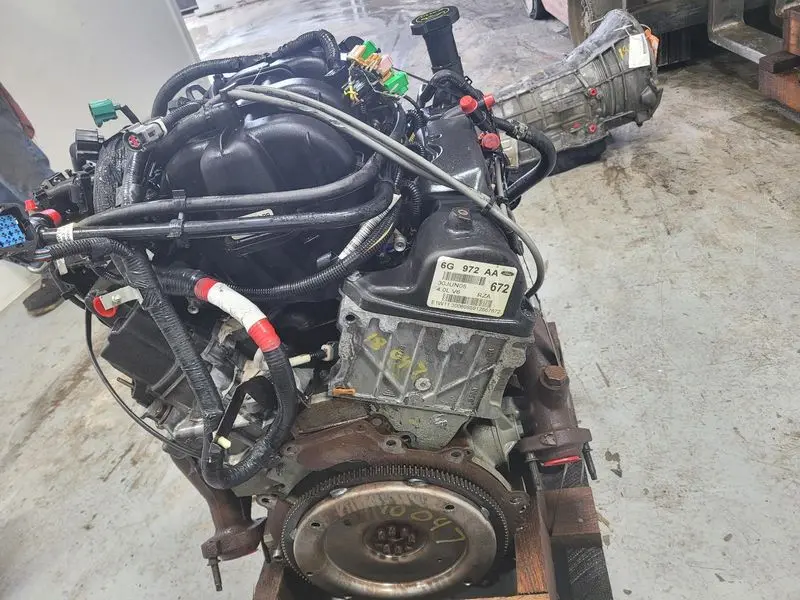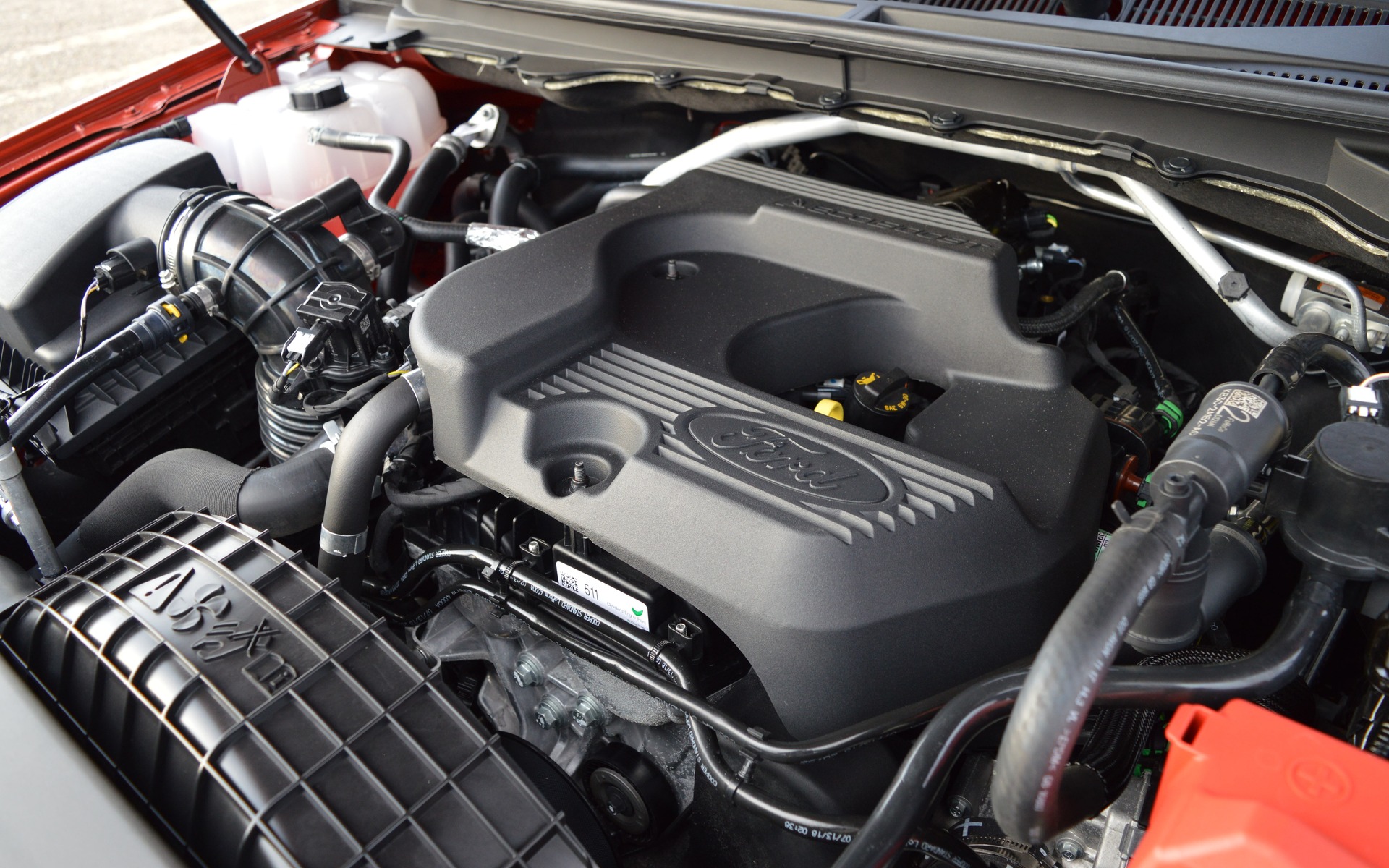Why the 2.2 Ford Ranger Engine Is a Popular Choice for Rugged and Reliable Performance
Why the 2.2 Ford Ranger Engine Is a Popular Choice for Rugged and Reliable Performance
Blog Article
Exactly How to Choose the Right Vehicle Engine for Maximum Performance and Performance
Picking the appropriate vehicle engine to achieve an ideal equilibrium of efficiency and performance necessitates a nuanced understanding of numerous engine types and their certain attributes. Aspects such as engine variation, the number of cyndrical tubes, and fuel type play a pivotal role in figuring out both power result and fuel economic situation. While some might lean towards performance-driven options, others might focus on sustainability and efficiency. Recognizing these dynamics is important; nonetheless, the difficulty hinges on straightening these characteristics with your private driving choices and demands. What considerations will eventually assist your decision?
Understanding Engine Types
When selecting an auto, among one of the most crucial parts to take into consideration is the engine type, which acts as the heart of the car. The engine kind significantly influences the car's general efficiency, longevity, and suitability for your driving requirements. There are mostly 3 engine types to think about: interior combustion engines (ICE), hybrid engines, and electric engines.
Interior combustion engines stay the most common, operating fuel or diesel. They are understood for their power and acceleration, making them suitable for performance-oriented cars. They may drop short in gas efficiency and ecological influence.
Hybrid engines combine an internal combustion engine with an electrical motor, offering an equilibrium between efficiency and fuel economic climate. They are progressively popular for vehicle drivers looking for reduced exhausts while still providing adequate power.
Electric engines, powered completely by batteries, are gaining grip as a result of their ecological benefits and reduced running prices. They give instantaneous torque and a silent driving experience, making them perfect for city travelling.

Performance vs. Efficiency
Picking the appropriate engine kind entails evaluating the trade-offs between performance and effectiveness. Performance normally refers to how well an engine can deliver power and acceleration, which is commonly linked with larger displacement engines or those with turbocharging capabilities. These engines commonly supply exciting driving experiences and quick feedback times, making them preferred among enthusiasts.
On the various other hand, performance focuses on fuel economy and lower emissions. Smaller sized engines, specifically those outfitted with innovative modern technologies such as direct fuel injection and variable valve timing, tend to provide much better miles per gallon and minimized carbon footprints. While these engines might compromise some power contrasted to their larger equivalents, they usually succeed in daily driving scenarios where high efficiency is not always necessary.
Inevitably, the choice between efficiency and effectiveness depend upon private top priorities. A driver that values spirited driving might focus on a high-performance engine, while somebody seeking affordable commuting may favor a reliable choice. Recognizing these trade-offs is vital for making a notified decision that lines up with your driving demands and way of life, ensuring that the picked engine type matches your expectations for both efficiency and performance.
Key Specs to Think About
Comprehending crucial requirements is important for making an informed choice regarding the best automobile engine. When choosing an engine, several crucial factors warrant consideration to ensure ideal performance and performance.
It suggests the total quantity of the engine's cylinders and typically associates with power outcome; larger variations typically yield more power. Engines with more cylinders can supply smoother procedure and greater power, while smaller sized setups can enhance gas performance.
In addition, the engine's configuration, whether inline, V-type, or rotary, influences the general style and performance features of the car - 2.2 ford ranger engine. Turbocharging and turbo charging modern technologies ought to also be examined; these boost an engine's power result without significantly boosting its size, thus enhancing performance
Gas type is another key consideration, as it influences both efficiency and prices. Lastly, the engine's compression ratio affects performance and power shipment; a greater proportion generally results in much better efficiency, yet may require superior fuel. By meticulously examining these specifications, you can choose an engine that lines up with your efficiency and effectiveness goals.
Evaluating Driving Demands
Examining driving demands is a fundamental action in figuring out the right auto engine for your way of living and usage patterns. If your driving primarily is composed of brief commutes in city environments, a smaller sized engine with excellent gas efficiency might be sufficient.
Consider the terrain you normally browse. Hilly or tough landscapes might require an engine with look at this now greater torque for far better efficiency. In addition, assess passenger and freight requirements; larger families or those that move items might gain from automobiles with raised power and capacity.
Diesel engines typically offer superior torque and gas economic climate for much heavier vehicles, while fuel engines may offer a smoother and quieter experience. Element in ecological considerations, as hybrid or electrical engines can supply a more sustainable choice without compromising performance.
Future Fads in Engine Modern Technology
As the automotive sector remains to advance, innovations in engine technology are paving the method for more efficient and sustainable driving experiences. One significant pattern is the shift towards electrification, with hybrid and totally electrical powertrains getting prominence. Car manufacturers are spending heavily in battery technology to boost power thickness and decrease billing times, inevitably improving the practicality of electric vehicles (EVs)
Another emerging pattern is the development of hydrogen gas cell engines. 2.2 ford ranger engine. These systems provide the potential for zero-emission driving while supplying refueling times comparable to typical gas engines. Additionally, advancements in combustion technology, such as variable compression proportions and boosted turbocharging, are optimizing typical interior burning engines for far better effectiveness and efficiency
Digital assimilation is additionally an important facet of future engine innovation. The application of expert system and equipment discovering enables real-time information analysis, enabling smarter engine monitoring systems that adjust to driving conditions and enhance gas effectiveness.

Final Thought
To conclude, picking the proper automobile engine necessitates a comprehensive assessment of various factors, consisting of engine kind, performance needs, and effectiveness goals. By comprehending the differences in between various engine types and considering essential specifications, individuals can align their options with certain driving demands. As innovations in engine technology continue to emerge, continuing to be educated about future trends will better boost decision-making, ultimately resulting in a car that stabilizes efficiency and fuel performance effectively.
Choosing the appropriate auto engine to achieve an optimum balance of efficiency and performance demands a nuanced understanding of over at this website various engine types and their details characteristics. There are mainly three engine types to think about: interior combustion engines (ICE), hybrid engines, and electrical engines.
Efficiency generally refers to exactly how well an engine can supply power and Resources acceleration, which is usually associated with bigger displacement engines or those with turbocharging abilities. Diesel engines often provide premium torque and fuel economic climate for heavier cars, while fuel engines may give a smoother and quieter experience.In conclusion, choosing the suitable auto engine demands a comprehensive analysis of numerous elements, including engine kind, efficiency requirements, and efficiency goals.
Report this page